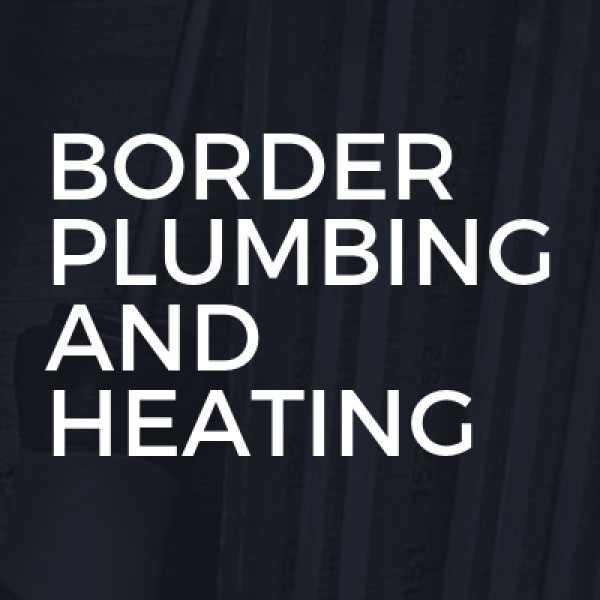Boiler/Heating Engineers in Wrexham/Wrecsam
Welcome to Hometech-Group, your go-to experts for all your heating and building needs in Handbridge and across Cheshire. As a trusted nam... read more »
Welcome to GJ Heating LTD, your go-to experts for all things heating and plumbing in the heart of Chester and throughout Cheshire. As a l... read more »
Welcome to Border Plumbing And Heating, the premier choice for plumbing and heating services in Whittington and throughout Shropshire. As... read more »
Welcome to J.A Gas Services, your trusted Boiler and... read more »
Welcome to LB Heating & Property Maintenance, your go... read more »
Welcome to BID Heating & Plumbing Ltd, your go-to exp... read more »
Blue Flame Plumbing & Heating is you... read more »
Welcome to Thomas Plumbing and Heating, the premier c... read more »
Everything Letting Property Services Ltd: You... read more »
M J Worton Heating And Plumbing is a... read more »
Welcome to Kevin Ogden Plumbing And Heating, your tru... read more »
Welcome to JSP Plumbing & Heating, your go-to experts... read more »
Welcome to A J D Plumbing And Heating, your trusted p... read more »
Welcome to Canary Gas Ltd, your trusted partner for a... read more »
MDR Renewables Ltd is a distinguishe... read more »
Pro Gas Wxm Ltd is your go-to expert... read more »
J M Harrison Plumbing & Heating Servicesread more »
Welcome to No13 Heating Professionals, your go-to exp... read more »
LKR Plumbing & Heating: Premier Tradespeople... read more »
Welcome to Rapid Plumbers Ltd, your premier choice fo... read more »
Understanding the Role of Boiler/Heating Engineers in Wrexham/Wrecsam
Boiler and heating engineers play a crucial role in ensuring the comfort and safety of homes and businesses in Wrexham/Wrecsam. These skilled professionals are responsible for installing, maintaining, and repairing heating systems, which are essential for keeping buildings warm during the chilly months. In this article, we'll delve into the various aspects of their work, the skills required, and the importance of their services in the community.
The Importance of Heating Systems in Wrexham/Wrecsam
Wrexham/Wrecsam, located in North Wales, experiences a temperate maritime climate, with cold winters that necessitate efficient heating systems. The role of heating engineers is vital in ensuring that homes and businesses remain warm and comfortable. Without their expertise, many residents would face the harsh reality of cold, unheated spaces, which could lead to health issues and decreased quality of life.
Key Responsibilities of Boiler/Heating Engineers
Boiler and heating engineers in Wrexham/Wrecsam have a wide range of responsibilities. They are tasked with installing new heating systems, which involves selecting the appropriate equipment, ensuring proper installation, and testing the system for efficiency and safety. Additionally, they perform regular maintenance checks to prevent breakdowns and extend the lifespan of the systems. When issues arise, these engineers are called upon to diagnose and repair faults, ensuring minimal disruption to the heating supply.
Installation of Heating Systems
Installing a heating system is a complex process that requires a deep understanding of various components and technologies. Engineers must assess the specific needs of a building, considering factors such as size, layout, and insulation. They then select the most suitable boiler or heating system, ensuring it meets energy efficiency standards and complies with local regulations.
Maintenance and Servicing
Regular maintenance is essential for the efficient operation of heating systems. Engineers perform routine checks to identify potential issues before they become major problems. This includes inspecting components, cleaning parts, and ensuring that the system operates at optimal efficiency. Regular servicing not only prolongs the life of the system but also helps in reducing energy bills and preventing unexpected breakdowns.
Repair and Troubleshooting
When a heating system malfunctions, it can cause significant inconvenience. Boiler and heating engineers are skilled in diagnosing and repairing faults quickly and efficiently. They use specialised tools and techniques to identify the root cause of the problem and implement effective solutions, ensuring that the heating system is back up and running in no time.
Skills and Qualifications of Boiler/Heating Engineers
Becoming a boiler or heating engineer requires a combination of technical skills, formal education, and practical experience. Engineers must have a strong understanding of mechanical systems, electrical components, and safety regulations. In the UK, they often complete apprenticeships or vocational training programmes, gaining hands-on experience under the supervision of experienced professionals.
Technical Expertise
Technical expertise is at the core of an engineer's skill set. They must be proficient in reading blueprints, understanding complex systems, and using diagnostic tools. This expertise allows them to install, maintain, and repair heating systems with precision and efficiency.
Problem-Solving Abilities
Engineers frequently encounter unexpected issues that require quick thinking and effective problem-solving skills. They must be able to assess situations, identify potential solutions, and implement the best course of action to resolve problems swiftly and effectively.
Communication Skills
Effective communication is essential for engineers, as they often work closely with clients to understand their needs and explain technical concepts in simple terms. Good communication ensures that clients are informed about the work being done and any necessary follow-up actions.
The Impact of Boiler/Heating Engineers on Energy Efficiency
Boiler and heating engineers play a significant role in promoting energy efficiency in Wrexham/Wrecsam. By installing modern, energy-efficient systems and performing regular maintenance, they help reduce energy consumption and lower utility bills for residents and businesses. This not only benefits individual clients but also contributes to broader environmental goals by reducing carbon emissions.
Energy-Efficient Installations
Modern heating systems are designed to be more energy-efficient than older models. Engineers are knowledgeable about the latest technologies and can recommend systems that offer the best balance of performance and efficiency. By choosing energy-efficient options, clients can enjoy reduced energy costs and a smaller carbon footprint.
Regular Maintenance for Optimal Performance
Regular maintenance is key to ensuring that heating systems operate at peak efficiency. Engineers perform thorough inspections and tune-ups, identifying any issues that could lead to energy wastage. By addressing these problems promptly, they help clients maintain efficient systems that consume less energy.
Choosing the Right Boiler/Heating Engineer in Wrexham/Wrecsam
Selecting the right engineer is crucial for ensuring high-quality service and reliable heating systems. Clients should consider several factors when choosing an engineer, including qualifications, experience, and reputation. It's also important to seek recommendations from trusted sources and read reviews from previous clients.
Checking Qualifications and Certifications
Qualified engineers should hold relevant certifications and accreditations, such as Gas Safe registration, which ensures they are authorised to work with gas appliances. Clients should verify these credentials to ensure they are hiring a competent professional.
Evaluating Experience and Expertise
Experience is a valuable asset in the heating industry. Engineers with a proven track record of successful installations and repairs are more likely to deliver reliable service. Clients should inquire about an engineer's experience and ask for references from previous projects.
Reading Reviews and Seeking Recommendations
Online reviews and recommendations from friends or family can provide valuable insights into an engineer's reputation. Positive feedback from satisfied clients is a good indicator of quality service and professionalism.
Common Challenges Faced by Boiler/Heating Engineers
While boiler and heating engineers are skilled professionals, they often encounter challenges in their work. These can include dealing with outdated systems, navigating complex installations, and managing client expectations. Despite these challenges, engineers remain committed to delivering high-quality service and ensuring customer satisfaction.
Handling Outdated Systems
Many buildings in Wrexham/Wrecsam still rely on older heating systems that may not meet modern efficiency standards. Engineers must be adept at working with these systems, finding ways to improve their performance or recommending suitable upgrades.
Complex Installations
Some installations can be particularly complex, requiring engineers to navigate tight spaces, integrate multiple components, and ensure compliance with regulations. These challenges demand a high level of skill and attention to detail.
Managing Client Expectations
Clients may have specific expectations regarding the performance and cost of heating systems. Engineers must communicate clearly and manage these expectations, ensuring clients understand the capabilities and limitations of their systems.
Future Trends in the Heating Industry
The heating industry is constantly evolving, with new technologies and trends shaping the way engineers work. In Wrexham/Wrecsam, engineers are increasingly focusing on sustainable solutions, smart technologies, and renewable energy sources to meet the growing demand for eco-friendly heating options.
Sustainable Heating Solutions
As environmental concerns become more prominent, there is a growing demand for sustainable heating solutions. Engineers are exploring options such as heat pumps, solar thermal systems, and biomass boilers, which offer environmentally friendly alternatives to traditional heating methods.
Integration of Smart Technologies
Smart technologies are revolutionising the heating industry, allowing for greater control and efficiency. Engineers are increasingly incorporating smart thermostats and home automation systems, enabling clients to monitor and adjust their heating remotely for optimal comfort and energy savings.
Embracing Renewable Energy Sources
Renewable energy sources, such as solar and wind power, are becoming more accessible and affordable. Engineers are exploring ways to integrate these sources into heating systems, reducing reliance on fossil fuels and promoting sustainable energy use.
Frequently Asked Questions
- What qualifications should a boiler/heating engineer have? Engineers should have relevant certifications, such as Gas Safe registration, and may have completed apprenticeships or vocational training programmes.
- How often should a heating system be serviced? It's recommended to have heating systems serviced annually to ensure optimal performance and prevent potential issues.
- What are the benefits of energy-efficient heating systems? Energy-efficient systems reduce energy consumption, lower utility bills, and contribute to environmental sustainability by reducing carbon emissions.
- How can I find a reputable boiler/heating engineer in Wrexham/Wrecsam? Seek recommendations from trusted sources, check online reviews, and verify the engineer's qualifications and experience.
- What are some common signs that a heating system needs repair? Unusual noises, inconsistent heating, and increased energy bills can indicate that a heating system requires attention.
- Are there eco-friendly heating options available? Yes, options such as heat pumps, solar thermal systems, and biomass boilers offer environmentally friendly alternatives to traditional heating methods.
Boiler and heating engineers in Wrexham/Wrecsam are essential for maintaining the comfort and safety of homes and businesses. Their expertise ensures that heating systems operate efficiently, reducing energy consumption and promoting sustainability. As the industry continues to evolve, these professionals will play a key role in implementing innovative solutions that meet the needs of the community.








